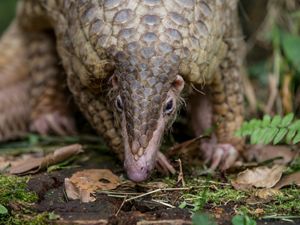Our Work in China
The Nature Conservancy's China Program reflects what we do best: using science, community engagement and non-political advocacy to save nature. Now in its third decade, TNC China is taking bold new steps to achieve conservation at tremendous scale—for China, and for the world.
We Can’t Save Nature Without You
Sign up to receive regular updates from The Nature Conservancy.

Snowy mountain scenery
in Yubeng, a small isolated village in the Meili Snow Mountains, Yunnan Province, China.
©
Scott Warren




